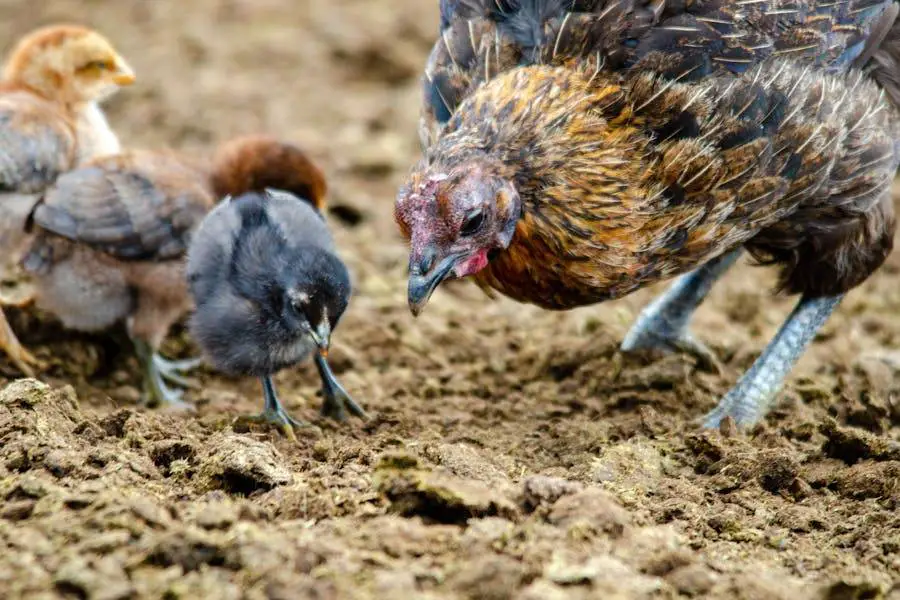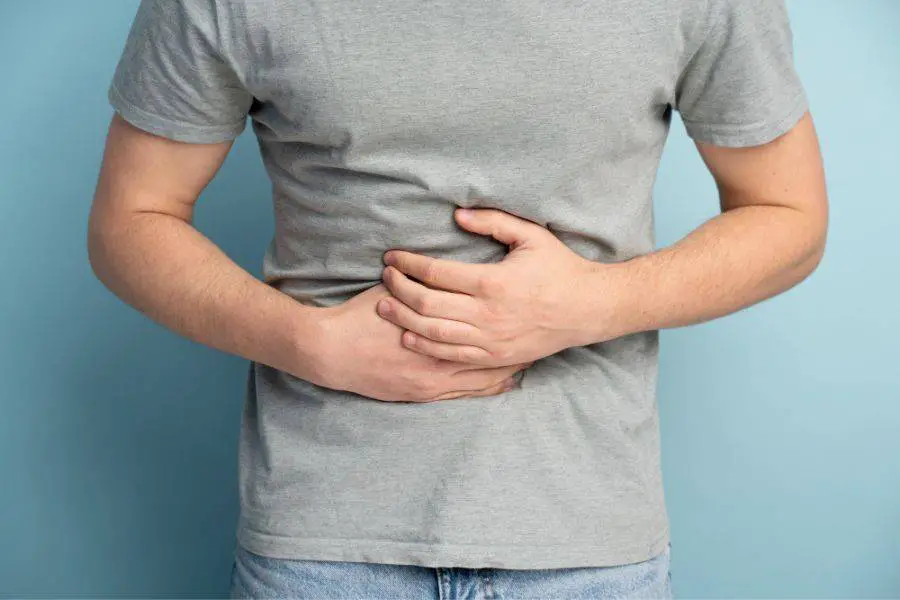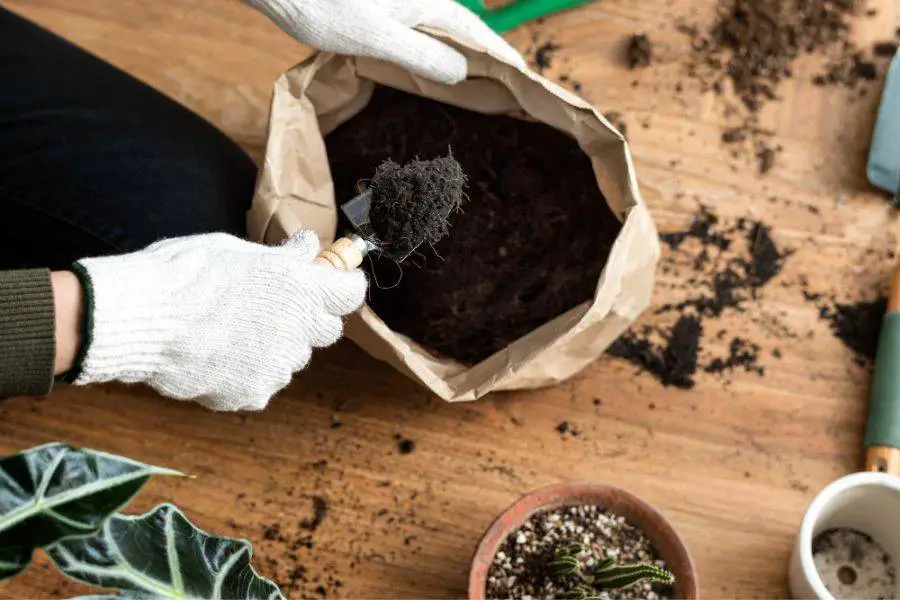Table of Contents
Chicken poop, or manure, is an inevitable byproduct of poultry farming. Whether you’re a backyard chicken keeper or a commercial poultry farmer, dealing with chicken poop is part of the job.

While chicken manure can be beneficial as a fertilizer due to its high nutrient content, it also carries potential health risks that shouldn’t be overlooked.
Health Risks Associated With Chicken Poop
Chicken poop can harbor harmful pathogens, including bacteria and viruses, which can infect humans and other animals.
These pathogens can cause a variety of illnesses, ranging from mild gastrointestinal upset to serious diseases like salmonella and E. coli infections.
Understanding the risks associated with chicken poop is essential for safe poultry keeping.
Duration of Danger
Lifespan of Harmful Pathogens in Chicken Poop
The danger posed by chicken poop doesn’t disappear immediately after it’s expelled. Many of the pathogens found in chicken poop can survive for weeks or even months in the environment.
For instance, the bacteria responsible for salmonella can live in feces for up to a year. This longevity increases the risk of infection and underscores the importance of proper poop management.
Factors Influencing the Duration of Danger
Several factors can influence how long chicken poop remains dangerous.
These include the specific type of pathogen present, environmental conditions like temperature and humidity, and whether the poop is left exposed or contained.
For example, pathogens tend to survive longer in cool, moist conditions and in poop that’s allowed to accumulate rather than being regularly cleaned up.
Waiting Periods for Safety Assurance
Timing in Various Scenarios
The concept of a waiting period to ensure safety varies widely depending on the context.
In some scenarios, such as driving, the ‘3-second rule’ is often advised to maintain a safe following distance from the vehicle ahead, giving drivers ample time to perceive and react to potential hazards.
Additionally, drivers are advised to scan the road at least 10 seconds ahead of their vehicle to avoid late reactions and hazards.
In traveling, it’s not about a specific waiting time, but more about ensuring that you’re not in isolated or potentially dangerous areas for longer than necessary.
The goal is to reach a safe place as quickly as possible.
In terms of health and infectious diseases like COVID-19, safety can mean different things.
For example, it can be safe to be around someone who has recovered from COVID-19 as little as 10 days after exposure.
However, if you’ve been exposed to the virus, it’s recommended to wait at least 5 full days before taking a test.
For food safety, perishable foods should be refrigerated as soon as possible and always within 2 hours after purchase or delivery.
Importance of Prompt Action in Safety Issues
When safety issues arise in the workplace or other environments, the time it takes to implement a remedy is critical.
Delays can increase the risk of accidents or injuries. Therefore, it’s crucial to address safety concerns promptly and effectively.
Lightning Safety Guidelines
Weather conditions also come with their own safety guidelines.
For instance, when it comes to lightning safety, it’s recommended to wait 30 minutes after the last lightning or thunder before going back outside.
In conclusion, the waiting period to ensure safety largely depends on the specific situation.
Whether it’s a matter of seconds in traffic, days in case of health concerns, or hours concerning food safety, the key is understanding and adhering to recommended guidelines to ensure your safety and that of others around you.
Pathogens in Chicken Poop
Common Bacteria and Viruses Found in Chicken Poop
Chicken poop can contain a variety of harmful bacteria and viruses. These include salmonella and E. coli bacteria, both of which can cause severe gastrointestinal illness in humans.
Other potential pathogens include campylobacter bacteria, which can cause food poisoning, and avian influenza viruses, which can infect both birds and humans.
How These Pathogens Affect Humans

In humans, the pathogens found in chicken poop can cause a range of symptoms.
These may include diarrhea, stomach cramps, nausea, vomiting, fever, and in severe cases, life-threatening complications like kidney failure or septicemia.
The risk of infection is particularly high for individuals with weakened immune systems, such as the elderly, young children, and people with chronic illnesses.
Protection Measures
Personal Hygiene Practices
One of the most effective ways to protect yourself from the risks of chicken poop is through good personal hygiene.
This includes washing your hands thoroughly with soap and water after handling chickens or cleaning their coop, wearing gloves when dealing with chicken poop, and avoiding touching your face or eating without washing your hands first.
Safe Handling of Chicken Poop
In addition to personal hygiene, safe handling of chicken poop is crucial.
This means promptly cleaning up chicken poop, using tools like a shovel or rake to avoid direct contact, and disposing of the poop in a secure container to prevent it from contaminating other areas.
Proper Disposal Methods
Safe Disposal of Chicken Poop
Proper disposal of chicken poop is essential to minimize its risks.
This can involve securing the poop in a sealed bag or container and disposing of it with your regular trash, or composting it to create a rich soil amendment.
If you choose to compost chicken poop, it’s important to do so safely to kill any pathogens present.
The Importance of Timely Disposal
Timely disposal of chicken poop is also crucial. Leaving chicken poop to accumulate can increase the concentration of harmful pathogens and the risk of infection.
It can also attract pests like rats and flies, which can spread the pathogens further. Regularly cleaning up chicken poop helps to keep your chickens healthy and reduces the risk to humans.
Utilizing Chicken Poop Safely
Composting Chicken Poop
Composting is a popular way to utilize chicken poop. When done correctly, composting can kill many of the pathogens in chicken poop, making it safe to use as a fertilizer.
The composting process involves mixing the poop with other organic materials like grass clippings or leaves and allowing it to decompose over several months.
During this time, the compost pile should reach high temperatures that can kill off harmful pathogens.
Safe Use of Chicken Manure in Gardening

If you choose to use composted chicken manure in your garden, it’s important to do so safely.
This means applying the manure at least 120 days before harvesting any crops that will be eaten raw, to allow time for any remaining pathogens to die off.
It’s also a good idea to wash any homegrown produce thoroughly before eating, to remove any potential contaminants.
Conclusion
Chicken poop can pose significant health risks due to the harmful bacteria and viruses it can contain.
These pathogens can survive in the environment for weeks or even months, posing a continued risk of infection.
However, by practicing good personal hygiene, handling chicken poop safely, disposing of it properly, and taking steps to prevent disease, you can minimize these risks and keep both yourself and your chickens healthy.
Safe chicken keeping is all about understanding the risks and taking appropriate measures to mitigate them.
Chicken poop is a necessary part of poultry farming, but with proper management and care, it doesn’t have to be a danger.
By following the information and advice in this article, you can enjoy the rewards of chicken keeping while ensuring the health and safety of both your flock and your family.








